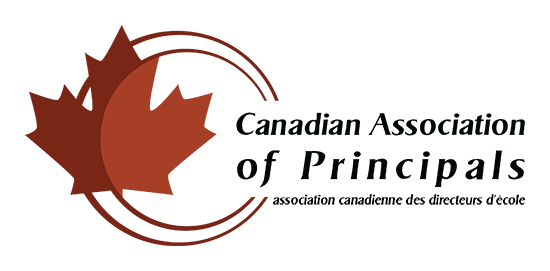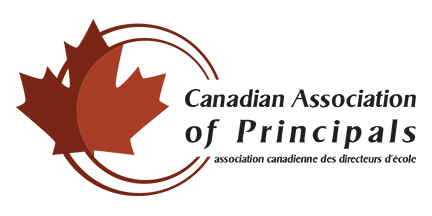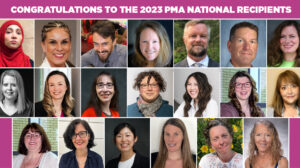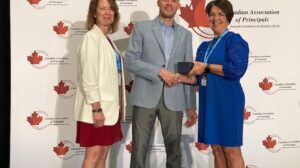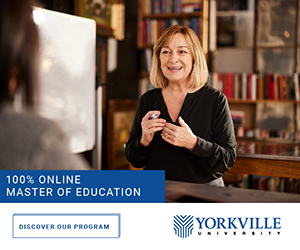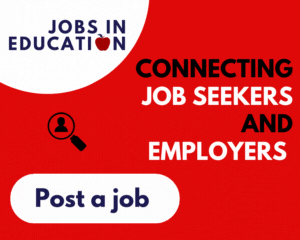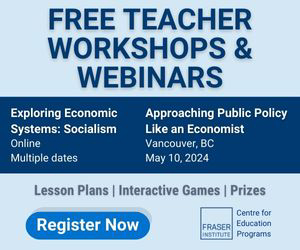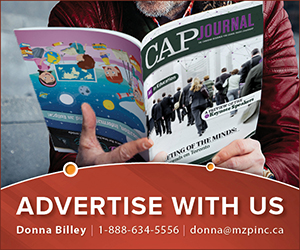Early Childhood Education plays an important and long-lasting role in the lives of children, influencing overall student success regardless of socio-economic standing (OECD, 2018). The impact of Early Childhood Education is considered so important that Ontario implemented a policy framework for it (Ontario, 2013) and 15 years ago created the College of Early Childhood Educators (CECE). The CECE is a self-regulating professional body for Early Childhood Educators (ECEs) (Ontario, 2007). Professional ECEs co-teach the Ontario two-year kindergarten program with professional teachers who are members of the Ontario College of Teachers (OCT).
The CECE requires every registered ECE to follow a Continuous Professional Learning (CPL) process where, at the time of this research, they developed three learning goals and document supporting activities to maintain their professional designation. The CPL is in addition to workplace training and professional development on the job (CECE, 2022). We sought to constructively clarify how professional learning is occurring, the types of professional learning, what ECEs believe they need, and how their professional learning relates to their work environments.
An electronic survey was constructed to gain descriptive details and an overview of ECE’s regarding professional learning in conjunction with some descriptive details. It yielded 52 responses and 13 self-nominated for a follow-up interview. The interviews triangulated with the survey and clarify the landscape of ECE professional learning.
Demographic Information
Participants were mostly (92.3%) members of Ontario’s CECE. Among the participants 40.4% had an undergraduate degree. Approximately two thirds (67.3%) had more than 12 years of experience and 50.0% had additional work-related training. The majority worked in child care centres (34.6%) or publicly funded school board kindergarten classrooms (28.8%). (See Table 1.)

General Findings
Our research found ECEs are very involved in professionally meeting the needs of the children in their care. They are knowledgeable, capable, and work in a complex environment. In Ontario, they develop the classroom kindergarten program jointly with their teacher partners. While they work alongside a teacher partner there are job distinctions such as writing report cards (Ontario, 2016). ECEs support the implementation of curriculum-aligned, play-based learning activities, documenting learning, and interpret a wide variety of policies, such as health and safety requirements, nutrition guidelines, child protection regulations. We have previously shown the landscape has substantial issues (Schroeter & Sibbald, 2020).
Our focus on professional learning found that ECEs are responsive to the spirit of the CECE’s CPL. For example, in the previous three years, at least three quarters (38) of the 52 educators reported pursuing self-selected professional learning in at least one of the following four areas:
- human development (e.g., continuum of developmental skills), 31 participants,
- special needs that arise from children (e.g., sign language, understanding autism), 33,
- personal assessment and reflection (e.g., self-learning, meditation), 36, and
- workplace regulations (e.g., first-aid training, the kindergarten curriculum), 38.
In short, they engage with workplace training and pursue professional learning in many ways.
ECEs and the CPL
ECEs identified a few challenges to completing the CPL: finding professional learning that fits their work and family schedules (24), cost (15), and either finding specific professional learning or opportunities within commuting distance (14). The interviews led to further details explained in the following sections.
Isolation of Kindergarten ECEs
Many of these aforementioned barriers also affect kindergarten ECEs but they also experience unique issues. The specialized kindergarten placement of ECEs can lead to them being marginalized within the school environment. Some described their experience as isolating by the circumstance noting “we don’t follow the bells of the school.” Others felt marginalized through their treatment: “The word ‘educator’ doesn’t get used for both ECE and OCT, it gets used for just OCT” (the teacher).
Collaboration Supports ECEs
ECEs praised school-based professional learning that included both ECEs and OCTs because it builds comradery and teamwork as well as facilitating dialogue between the two groups. As one ECE said: “the professional learning the board has put out to me has given me networking with other ECEs and other OCTs in kindergarten to share ideas.” Collaborative efforts, such as communities of practice and visits between schools, were also described as helpful.
ECE Criticism of School Board Professional Learning
On the other hand, it is clear from the research that approaches to professional learning vary between schools. School boards were criticized in some cases for offering professional learning that is not specifically oriented to kindergarten. One interviewee provided a comparison of school district and child care centre professional learning: “I find a lot of the PD that the board puts out is just common-sense things that are not really helpful.” Another ECE explained that “the professional learning the board has put out to me … hasn’t helped me a whole lot in the classroom.” We also heard that PD was “not relevant to teaching early childhood” and “a lot” was “not kindergarten applicable.”
Some of the negative comments about district professional learning seemed to be related to its the scope. School board workshops are often aligned with district or provincial mandates and foci that span various grade levels and have varying degrees of relevance to early childhood educators. For example, the 2020 change in the Ontario math curriculum led to ECEs being able to access professional learning oriented to how the math curriculum was changing, but this was of limited relevance to ECEs. One ECE indicated she had to try to contextualize the workshop information in terms of her own learning when she was a student in elementary school.
Ideally Kindergarten educators’ self-selected CPL goals would correspond to on-the-job employer professional development. This was not the case. ECEs reported that their CPL needs often did not fit school professional development offerings. One interviewee spoke of their principal encouraging her professional development. However, another ECE questioned whether the school principal knew anything about the CPL. The discrepancies may be related to the self-directed aspect of the CPL but professional development that constructively supports the CPL clearly benefits both sides.
Equity and Advancement
Access to release time for professional learning was identified as an issue The disparity is between the learning available for professional ECEs and for professional teachers (OCTs). An ECE explained: “OCT’s [teachers] are able to go to PD during the day, and have a supply come in and cover for them, but ECE’s often if they want to do something that they find actually meaningful they need to do it on their own time.”
Working relationships between ECEs and teachers can also be challenging due to experience differences. One ECE described working with eight different professional teacher partners in nine years: “I say my partners … none of them, with the exception of my first one, none of them had experience in Full Day Kindergarten when they started with me.” Another pointed out that the professional learning provided little opportunity for advancement: “I almost feel like after a certain period of time, years or whatever it would be, they could give a little bit of advanced standing to ECEs in kindergarten classrooms. Maybe just to teach kindergarten at the beginning …”
Overarching Findings
The issues that were raised fall into two overarching concerns: structural pathways and professional learning pathways.
Structural Relationships
The structural relationships between major components of the child care landscape can be improved. During its first decade of the CECE the focus has likely been on regulating individuals. However, we find that relationships between major ECE employers needs attention. In our opinion it is pivotal that regulatory oversight is visible and clear to the major components of the sector. Schools, child care centres, individual providers, and community-based charitable organizations would benefit from a greater awareness of this ECE-community. This could help ECEs clarify issues such as the relationship of the CPL to workplace training and other challenges such as employers being unaware of their ECEs’ CPL goals.
In schools it might allow ECEs and their kindergarten teacher partners to experience professional learning that is focused on the child developmental precursor to kindergarten and support kindergarten educators (ECEs and OCTs) to develop their working relationships and professional learning spaces. Finally, principals should support the Kindergarten team by including both professional ECEs and OCTs on signage and newsletters.
Pathways
The CPL is a one-size-fits-all approach that allows considerable choice, but fundamentally is a passive approach to professionalism. It could be adjusted to support ECEs more substantively. The most experienced ECEs expressed difficulty finding genuine learning opportunities. This need could be satisfied by actively running workshops and mentoring, but these currently do not count toward the CPL. The CECE could provide oversight and modify the CPL to encourage experienced ECEs to become recognized mentors or training providers, supporting ECE professional learning in the process.
Limitations to the Study
The respondents were all female, which reflects a “profession dominated by women” (Ho, n.d.). It is also suspected, though not known for certain, that the project lacks representation of indigenous and black ECEs or ECEs from other visible minorities.
Conclusion
Currently defined in a singular and passive manner, CPL oversight is not being used to resolve enduring issues to better the profession. In our opinion, relatively small changes in the oversight could drive significant improvements to the clarity of the CPL.
While we found a need for a closer connection between regulatory oversight and advocacy, it is also important for principals to look at how the ECEs in their kindergartens can be supported. Principals might focus on the ECE-OCT team needs. Alternatively, they could facilitate ECEs from various classrooms, schools, or the larger ECE community getting together. Either way there are opportunities to help enrich ECE professional learning in your school.
References
College of Early Childhood Educators (2022). One-Year CPL Portfolio Cycle. www.college-ece.ca/members/cpl-one-year-portfolio-cycle/
Ho, S. (n.d.). Gaining a Better Understanding of Men in Early Childhood Education. www.college-ece.ca/gaining-a-better-understanding-of-men-in-early-childhood-education/
Ontario (2007). Early Childhood Educators Act. Queen’s Printer for Ontario.
Ontario (2013). Early Years Policy Framework. Queen’s Printer for Ontario.
Ontario (2016). The Kindergarten Program. Queen’s Printer for Ontario.
Schroeter, E., & Sibbald, T. (2020). The kindergarten professional development in math conundrum. Canadian Association of
Principals Journal, Winter. Available at https://cdnprincipals.com/the-kindergarten-professional-development-in-math-conundrum/
AUTHOR BIOS:
Ed Schroeter is a retired Kindergarten and Reading Specialist and classroom kindergarten teacher. He is currently an educational writer researcher and early math content creator.
Dr. Tim Sibbald is an education researcher with a broad range of interests. Recent work hasexamined professional learning of ECEs, mathematics education at all levels, and lived experiences of academics. He is the editor of the Ontario Mathematics Gazette (OAME) and a full professor with the Schulich School of Education in North Bay, Ontario.
